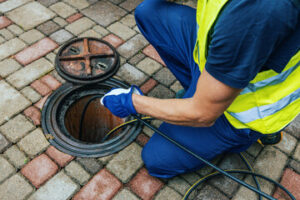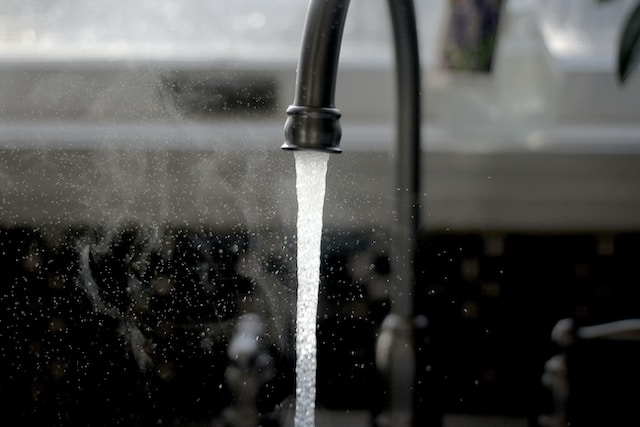Plumbing problems can be costly and frustrating. They can also be dangerous if not handled quickly. Knowing how to recognize common plumbing issues and the proper fixes can help you avoid major repairs in your home. Dripping faucets, clogged drains, knocking pipes and more can be solved with routine inspections and a little DIY effort. You can also call your local Plumbers Bossier City to help you.
Dripping Faucets

A dripping faucet is one of the most common and most annoying home plumbing issues. It usually means that the connections are loose, but there could also be a deeper problem with your water pressure or the actual pipes. While a dripping faucet can cause water damage and add to your utility bills, it’s usually relatively easy to fix yourself.
Before attempting a DIY repair, it’s important to shut off your water supply valves under the sink. This will prevent any water from gushing out while you’re working on the plumbing. It’s also a good idea to cover your sink drain with a rag or something similar to keep small parts from falling down the drain while you’re working.
First, remove the handles and securing hardware. This will give you access to the valve cartridge or stem. In some cases, the cartridge or stem will just slide right out, but other times you may need to loosen a nut with a wrench. Once you’ve removed the stem or cartridge, inspect it for any damage or wear. You can also clean the valve seat and other parts of your faucet if necessary. Use a vinegar bath or a scouring pad to get rid of any mineral buildup.
While it’s possible to repair most dripping faucets yourself, a broken pipe or other serious issue will require the expertise of a professional plumber. The plumber will be able to check the entire plumbing system and find the source of the problem. They can then repair or replace the affected pipes and fixtures. They will also be able to give you advice on how to prevent future problems.
Excessive Water Bills
A high water bill can be a sign of plumbing issues. However, a skyrocketing water bill could also indicate that something else is causing your home’s usage to rise. If you check the meter, it may be registering a higher amount of use due to one-time events, such as watering your garden or filling the kids’ swimming pool. A short-term spike in water bill due to these activities should clear up when the activity stops.
If you notice a high water bill that cannot be explained, shut off all the faucets and water-using appliances in your house. Take a walk around your property to see if you can spot the source of the leak. Leaky toilets and dripping faucets are the most common cause of a high water bill. A single dripping faucet can waste several gallons of water each day, and even one drop of water per second can cost you thousands of dollars over time.
Another potential cause of a high water bill is a faulty water meter that reads inaccurately. If this is the case, it is best to contact your water company so they can inspect and correct the meter.
If you are still unable to pinpoint the source of the high water bill, it is possible that there is a hidden leak in your plumbing system. This is a costly problem because the leaks promote mold growth, water damage and rot throughout your home. Leaks that go unnoticed can be caused by problems such as a crack or broken pipe in your irrigation system, basement or underground pipes. A plumber will be required to fix these types of issues.
Bad Odors and Noises
There are some sounds and odors that you’re likely to experience from time to time, such as water dripping or toilets flushing. But, if you smell a musty odor in the house or notice bubbling in your walls or ceiling, it’s important to call in a plumber right away. These symptoms could indicate a serious plumbing problem that needs to be fixed before it gets worse.
Foul odors from the drains are a clear sign that there’s a clog or blockage somewhere in the pipes. The bacteria from food, grease, and other organic waste build up in the pipes and produce gases that can stink up the whole house. If you suspect this is the case, try pouring a cup of baking soda into the drain, followed by a cup of vinegar. This will create a chemical reaction that breaks down the clog and eliminates the odor.
Gurgling noises from the sink, toilet, or shower are another surefire sign that you have a plumbing issue. These sounds could mean that there is a leak somewhere in the system and that it’s getting worse as time goes on. Leaking pipes can lead to water damage, mold growth, and increased utility bills, so it’s crucial to address them as soon as possible.
Another sign of a plumbing problem is seeing sewage on your floors or in the walls of your home. This is due to a backup in the sewer line, which can cause a lot of damage very quickly. If you suspect this is the case, call bluefrog Plumbing + Drain + HVAC of San Antonio right away. We can send a plumber out to your Helotes, TX, home to check out the situation and provide the ideal solution.
Slow Drains
Most homeowners don’t give drains much thought until they begin to slow down or stop working altogether. Slow drains are often a symptom of a bigger problem that needs professional attention before it gets worse.
Many at home remedies are available for slow drains, but the best course of action is to call in a plumber right away. Slow drains that don’t respond to simple at-home solutions such as vinegar and hot water could be caused by a blockage in your pipe system or your main sewer line.
A plumber can diagnose the cause of a slow drain and recommend the best solution. If the clog is in the pipe itself, they can use a plumbing snake to break up or dislodge the obstruction and restore proper drainage. If the clog is further down in the pipe, a plumber may choose to flush out the entire pipes using water pressure.
Your main sewer line runs underground from your house to the sewer treatment plant. If this pipe is blocked, it can result in sewage backing up into your home and even flooding basements. A clog in your main sewer line can be caused by many of the same things that impact individual drains, including hair, grease, food waste, cotton swabs, dental floss, and diapers or wet wipes that claim to be flushable.
If a plumber finds multiple sinks and tubs with slow draining, it’s likely that there is a problem with the pipe system itself. A plumber can send a camera down your pipes to identify the issue and recommend the most appropriate solution. Keeping dangerous materials out of your drains is one of the best ways to keep them healthy and working properly.
Air in the Pipes
You probably don’t give your plumbing system much thought, but it’s something you rely on every day. If you start to notice rattling or hissing sounds coming from your water pipes, it’s time to call in a professional plumber. These sound-signals can indicate air in the pipes, which isn’t a huge deal if you catch it early. But over time, it can cause a variety of issues.
One of the biggest problems associated with trapped air in the water pipes is rust and corrosion. When oxygen gets into the pipes, it creates a powerful oxidizing agent that can cause the steel in your pipes to corrode. Eventually, this can lead to leaking and broken pipes.
Another problem caused by air in the pipes is a lack of water pressure. The reason for this is that the displaced air causes water to be pushed backwards and lose velocity. Consequently, you won’t get the usual flow of water from your faucets.
The best way to know if you have air in the pipes is to check your plumbing valves and look for any signs of leaks. If you find any of these problems, you’ll need to replace the valves or call a plumber to do so.
Air in the pipes often enters the plumbing system following new pipe installations or alterations. It can also be a result of your local water authority making repairs to the main water lines to which your home connects. It may even enter the plumbing system as a result of your hot water heater losing pressurization or a sudden change in water pressure in your area. The good news is that removing air from the plumbing system is relatively simple. Just remember to turn off the water supply before you begin. Then, follow the step-by-step guide to remove the air from your pipes without damaging them.







